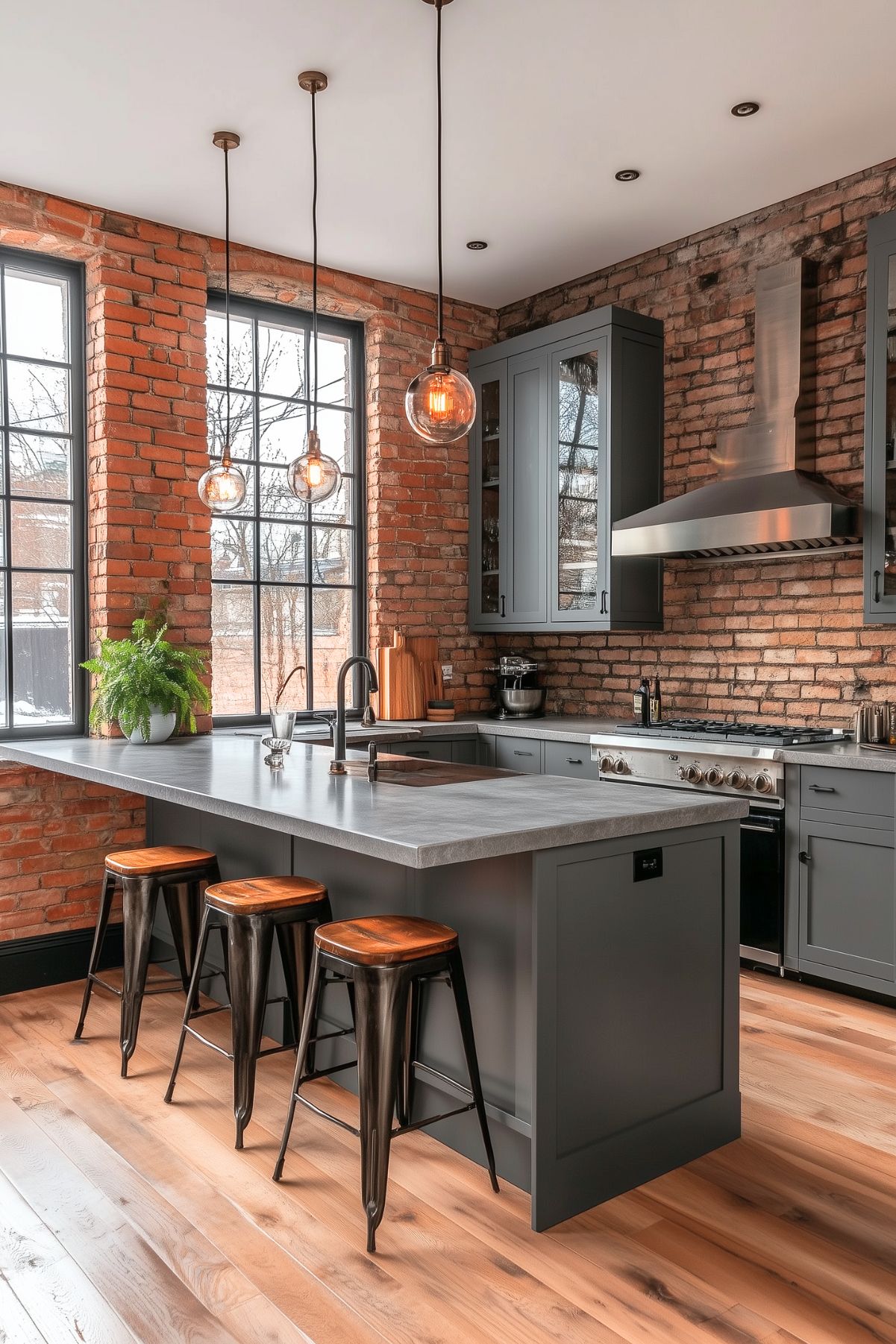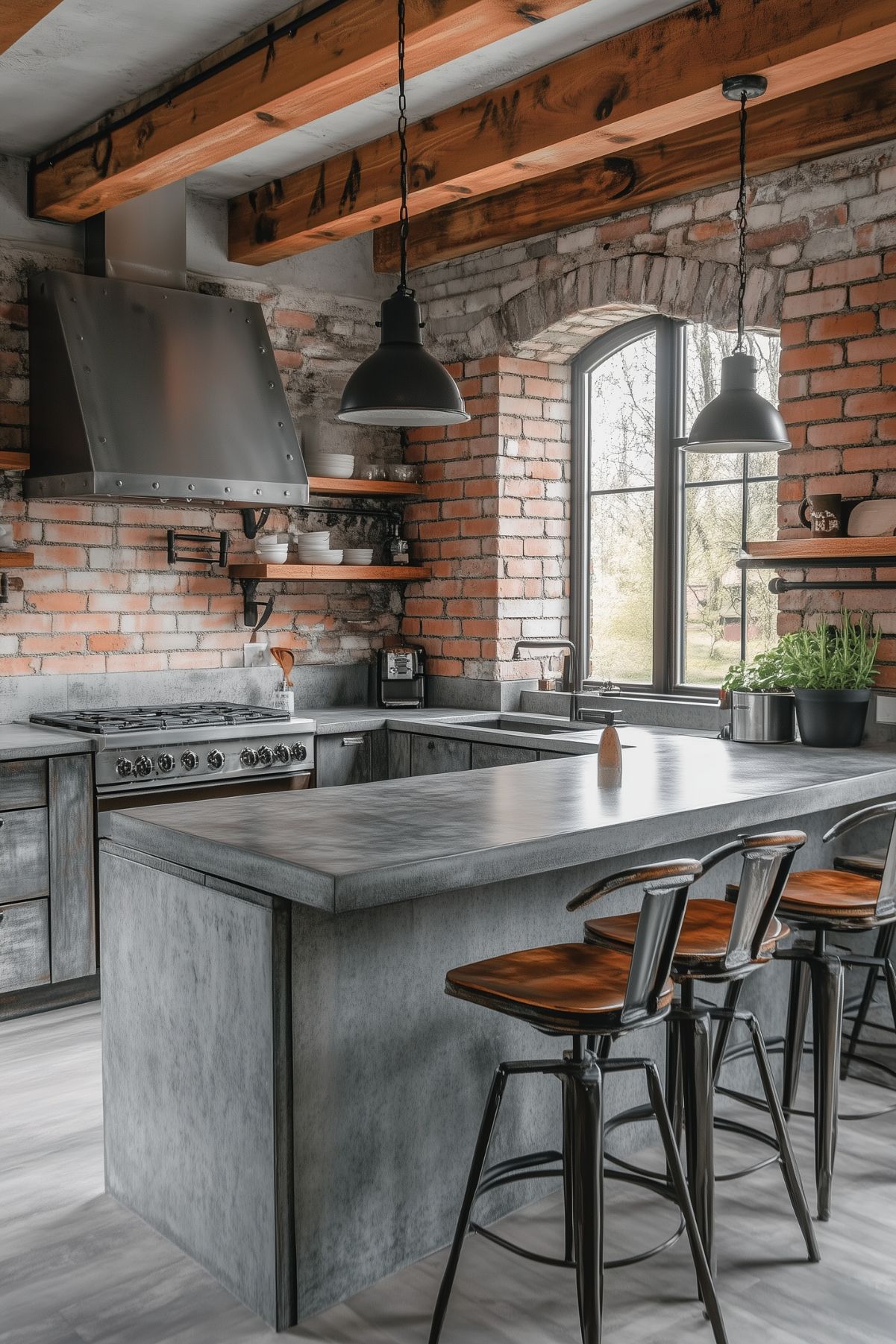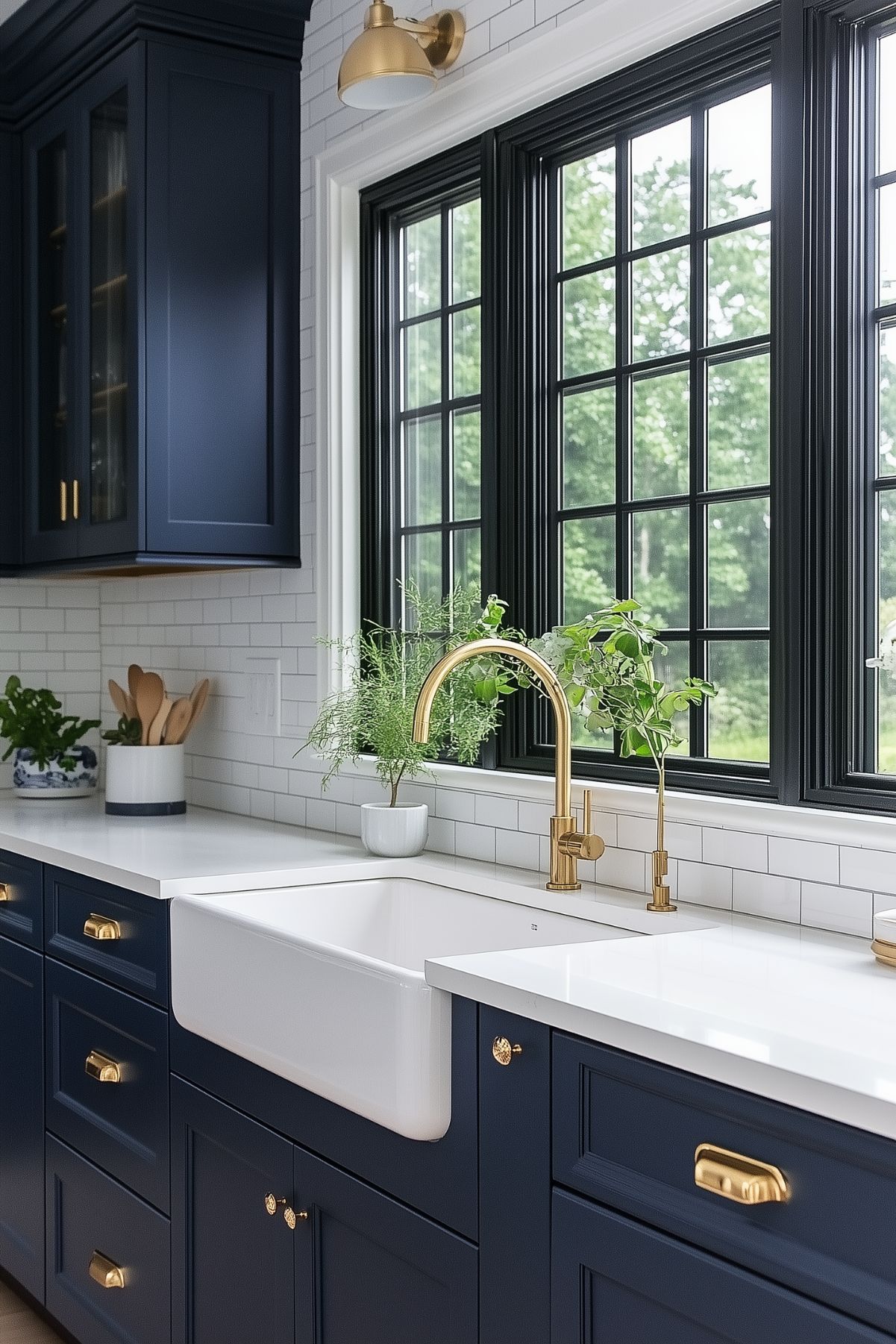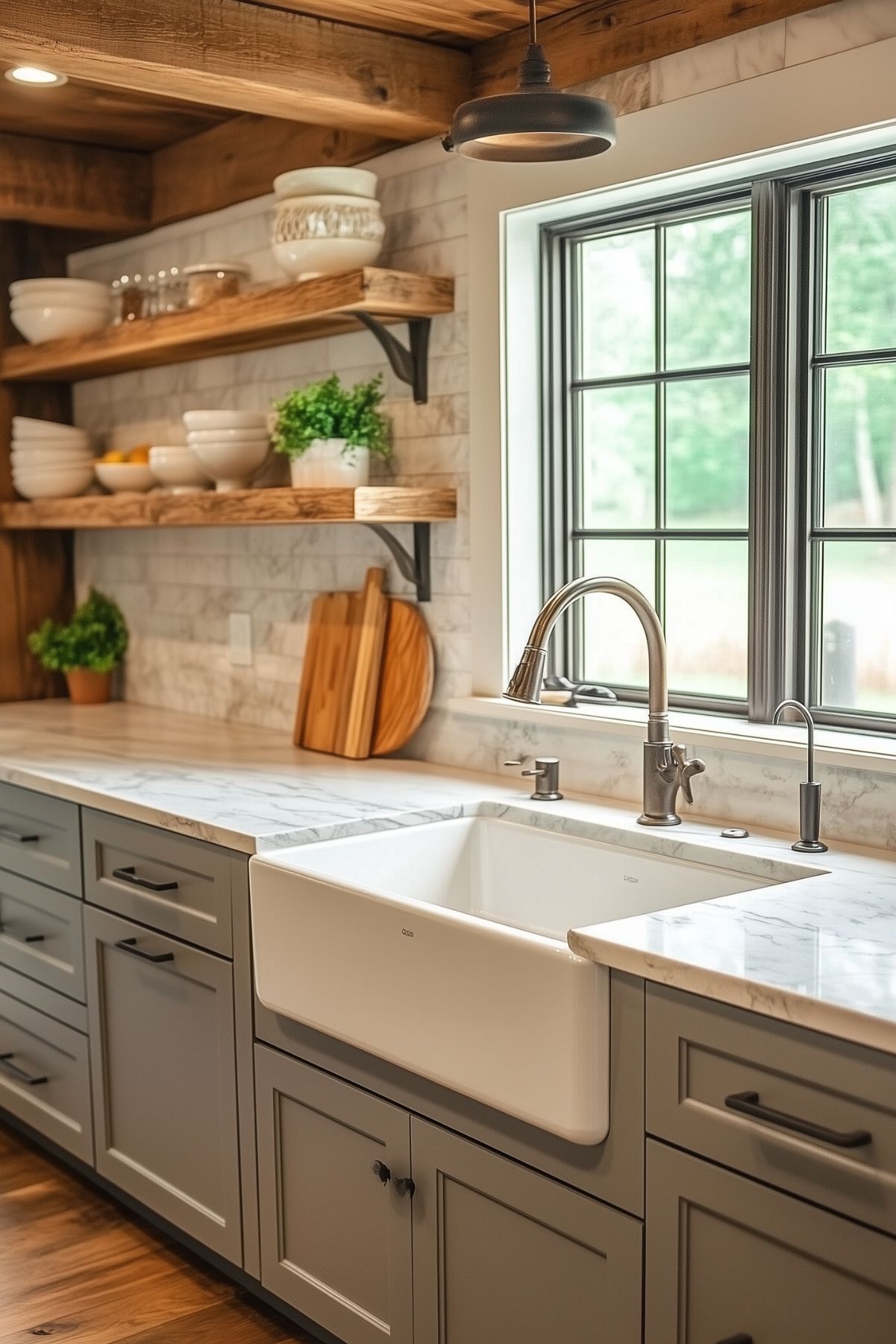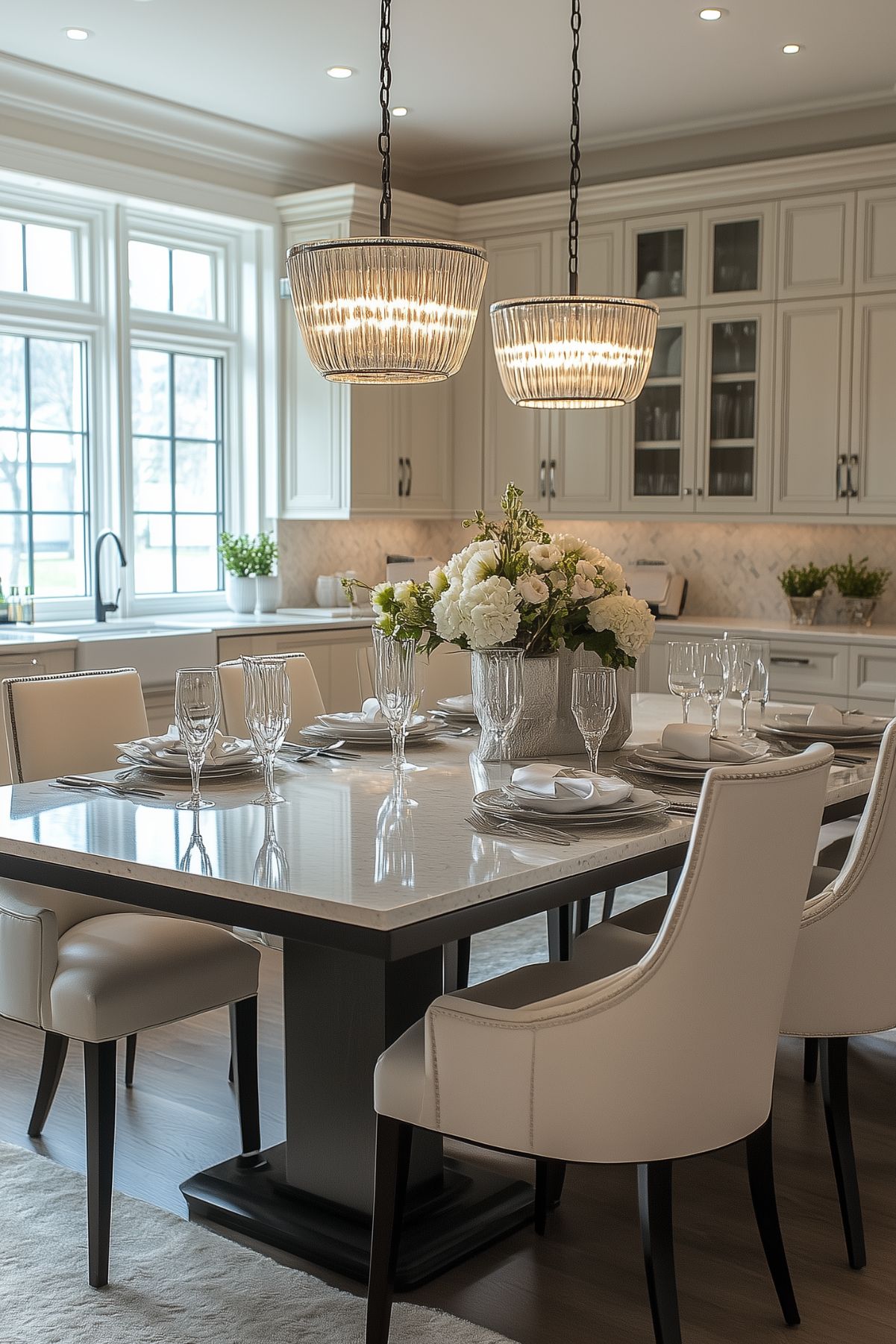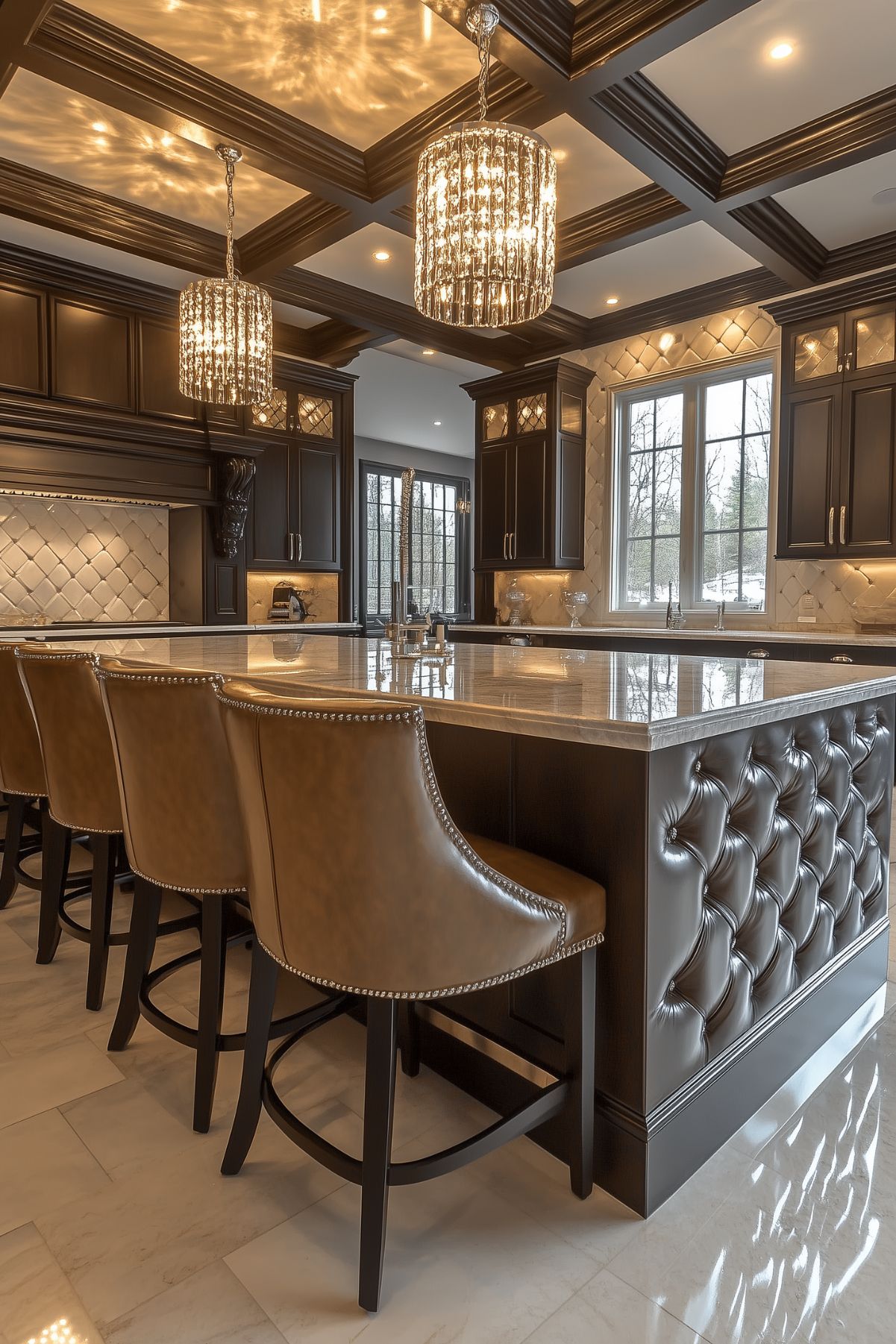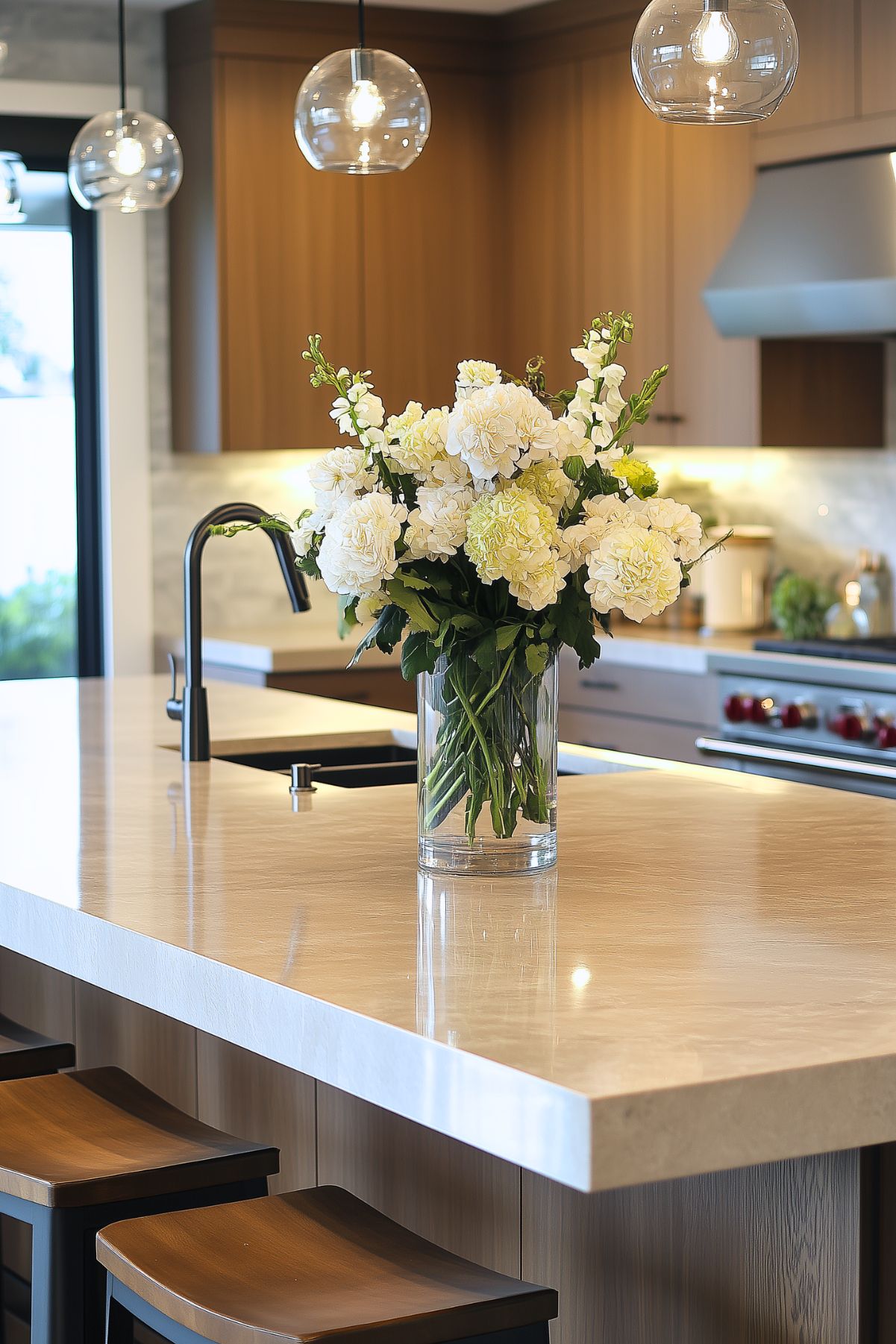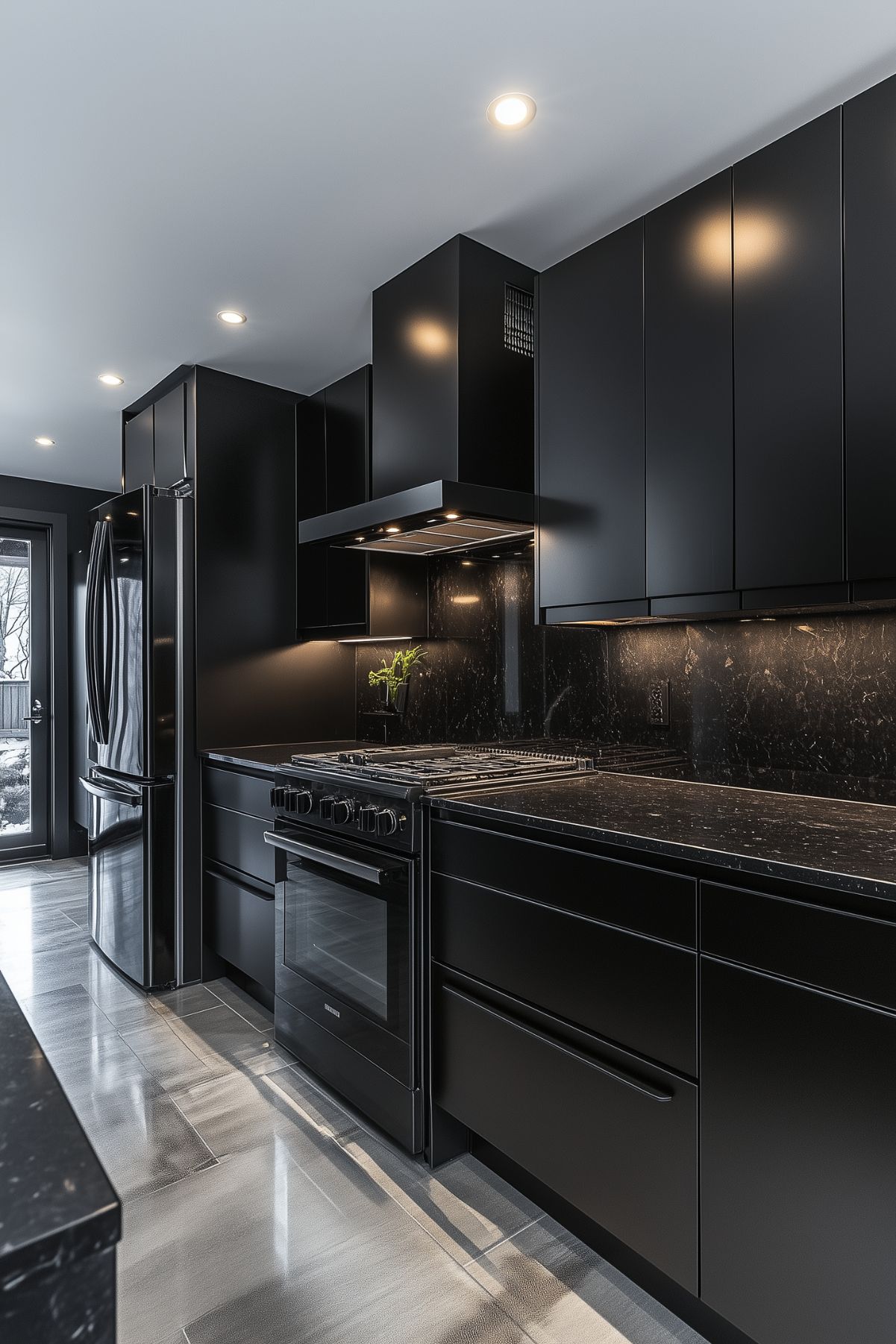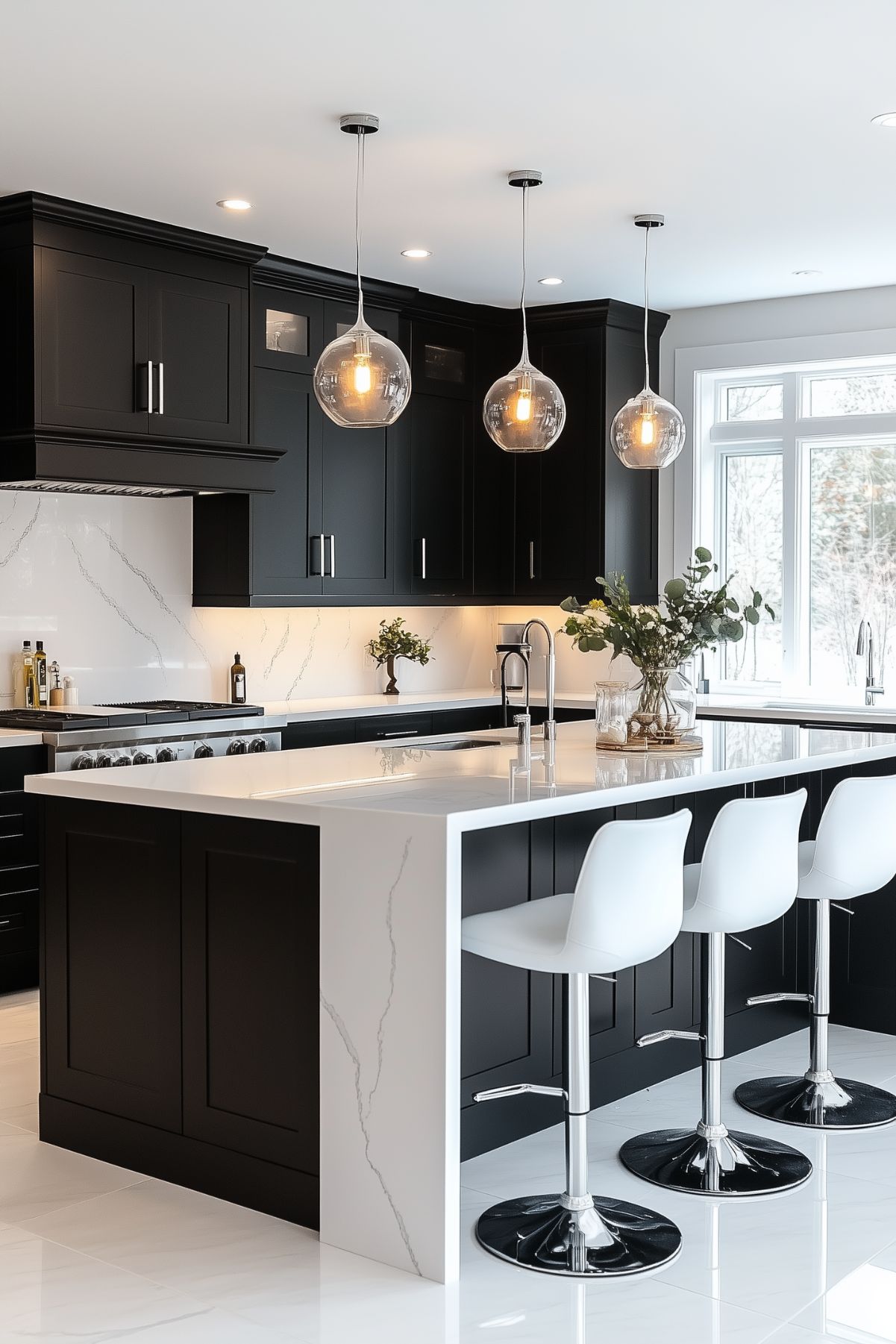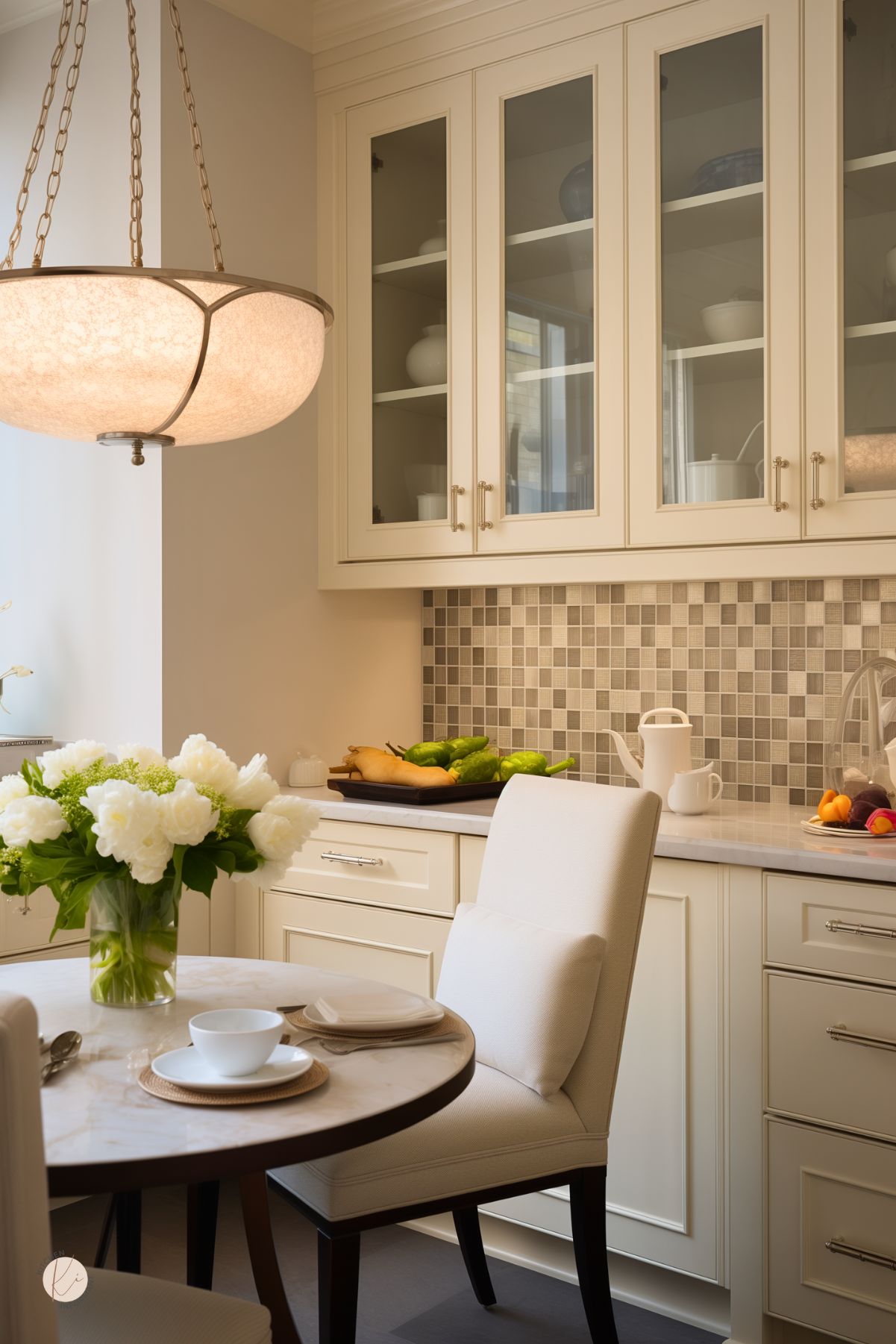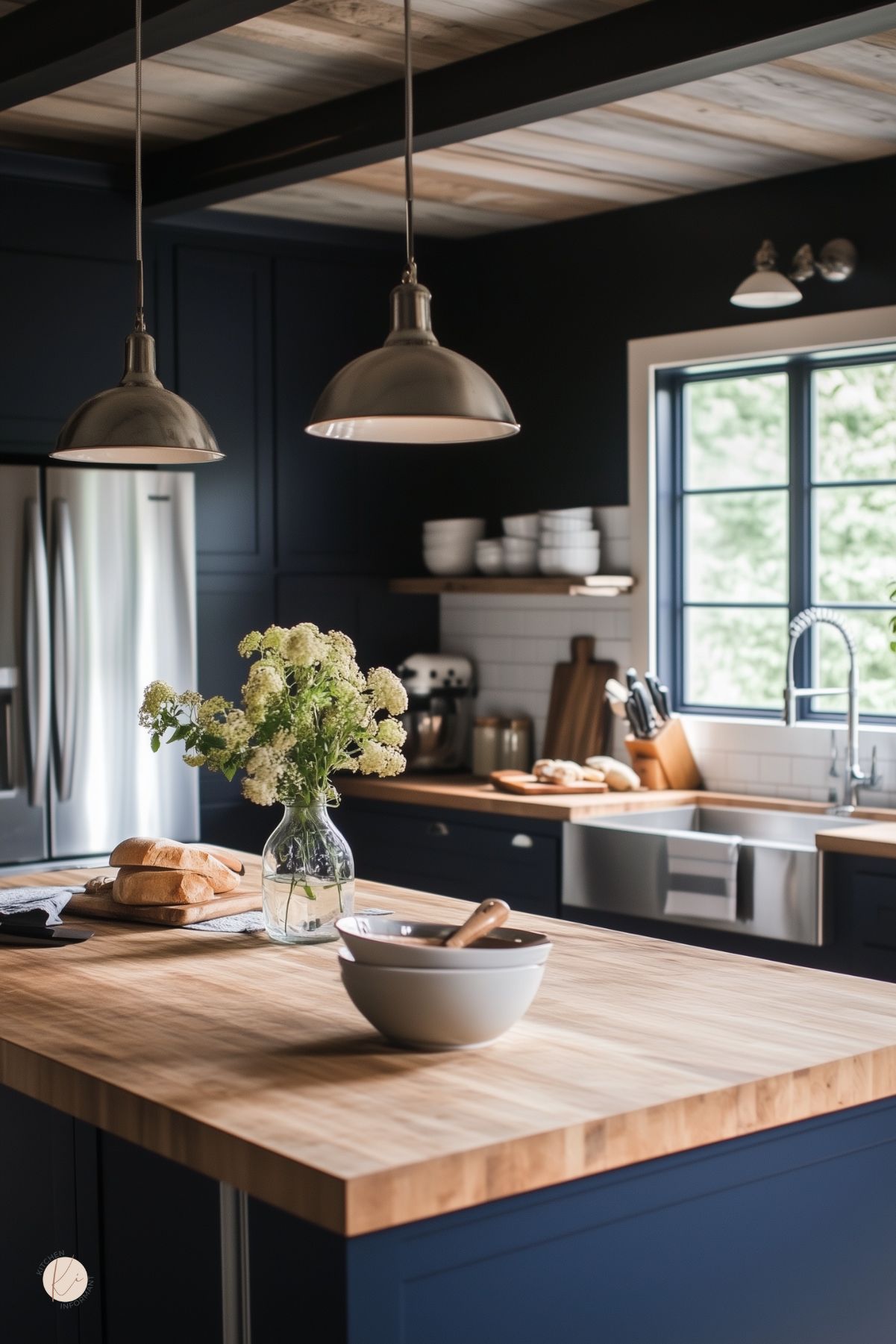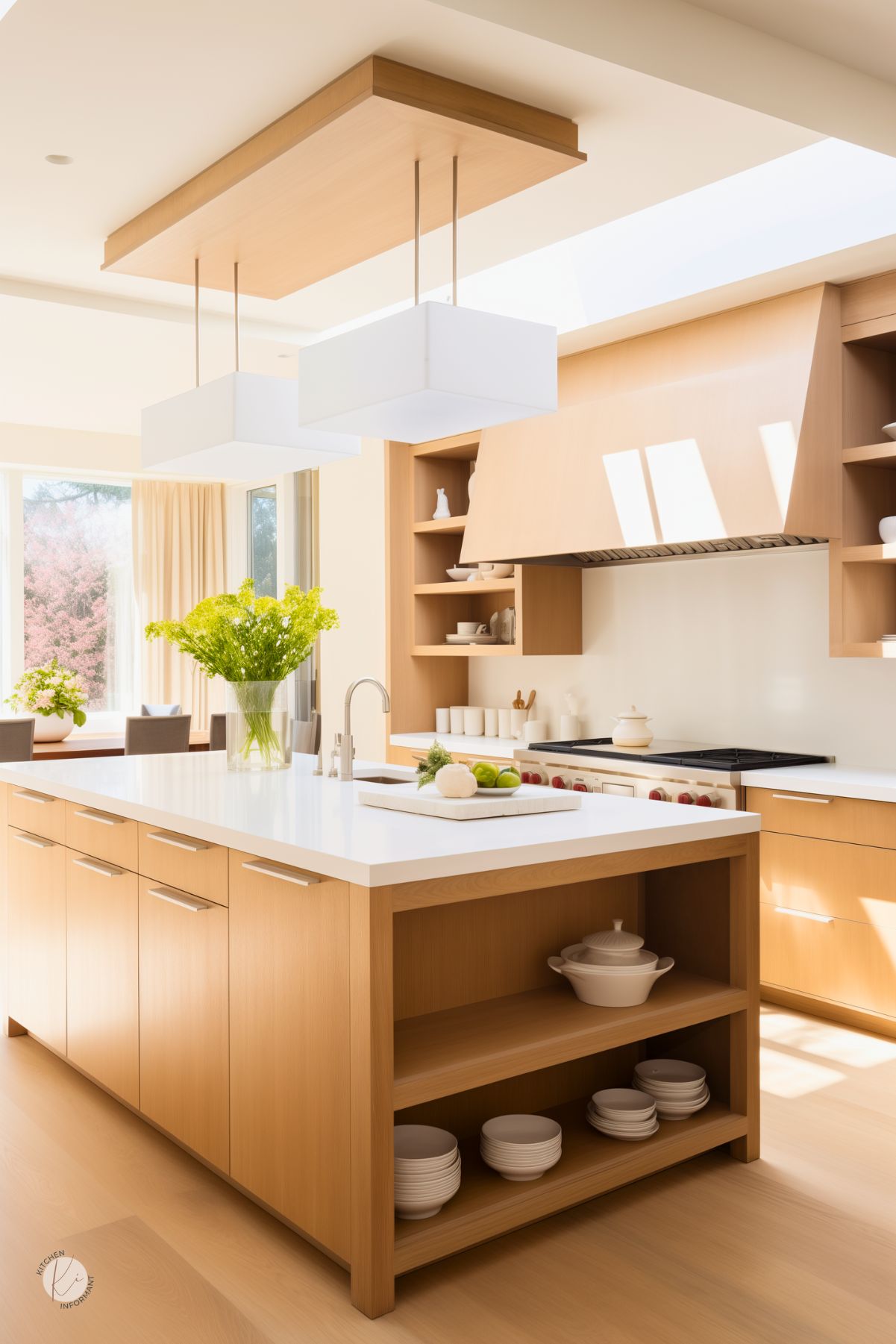The Pros and Cons of Quartz Kitchen Countertops: A Comprehensive Guide. Quartz countertops have become increasingly popular in recent years as a durable and stylish option for kitchen countertops.
Quartz is a manufactured material that combines natural quartz with resins and pigments to create a surface that is both hard and non-porous.
In this article, we will explore the pros and cons of quartz kitchen countertops to help you decide if they are the right choice for your home.

Quartz countertops offer many advantages, including their durability, low maintenance, and wide range of colors and patterns.
They are resistant to scratches, stains, and heat, making them ideal for a busy kitchen.
Additionally, they do not require sealing like natural stone countertops do, which makes them a more hygienic option.
On the other hand, quartz countertops can be expensive, and some people may prefer the natural look and feel of granite or marble countertops.
There are also environmental concerns associated with the manufacturing process of quartz countertops.
Key Takeaways
- Quartz countertops are a durable and low-maintenance option for kitchen countertops.
- They come in a wide range of colors and patterns to fit any kitchen design.
- However, they can be expensive and have environmental concerns associated with their manufacturing process.
What Are Quartz Countertops?
Quartz countertops are engineered stone surfaces that are made from a combination of natural quartz mineral and synthetic resins.
They are one of the most popular choices for kitchen countertops due to their durability, low maintenance, and attractive appearance.
Composition of Quartz Countertops
Quartz countertops are made up of about 90-95% natural quartz mineral, which is one of the hardest and most abundant minerals on earth.
The remaining 5-10% is made up of resins, polymers, and pigments that bind the quartz together and give it its color and pattern.
Quartz countertops are available in a wide range of colors and patterns, from solid colors to marble-like veining. They can also be made to mimic the look of other natural stones like granite or marble.
Manufacturing Process
The manufacturing process for quartz countertops involves mixing the natural quartz mineral with resins, polymers, and pigments.
The mixture is then poured into a mold and compressed under high pressure.
After the mixture has been compressed, it is cured in an oven at a high temperature to harden and strengthen the material.
The resulting quartz slab is then polished to a high shine and cut to the desired size and shape for use as a countertop.
The manufacturing process for quartz countertops results in a non-porous, scratch-resistant, and stain-resistant surface that is ideal for use in the kitchen.
Advantages of Quartz Countertops
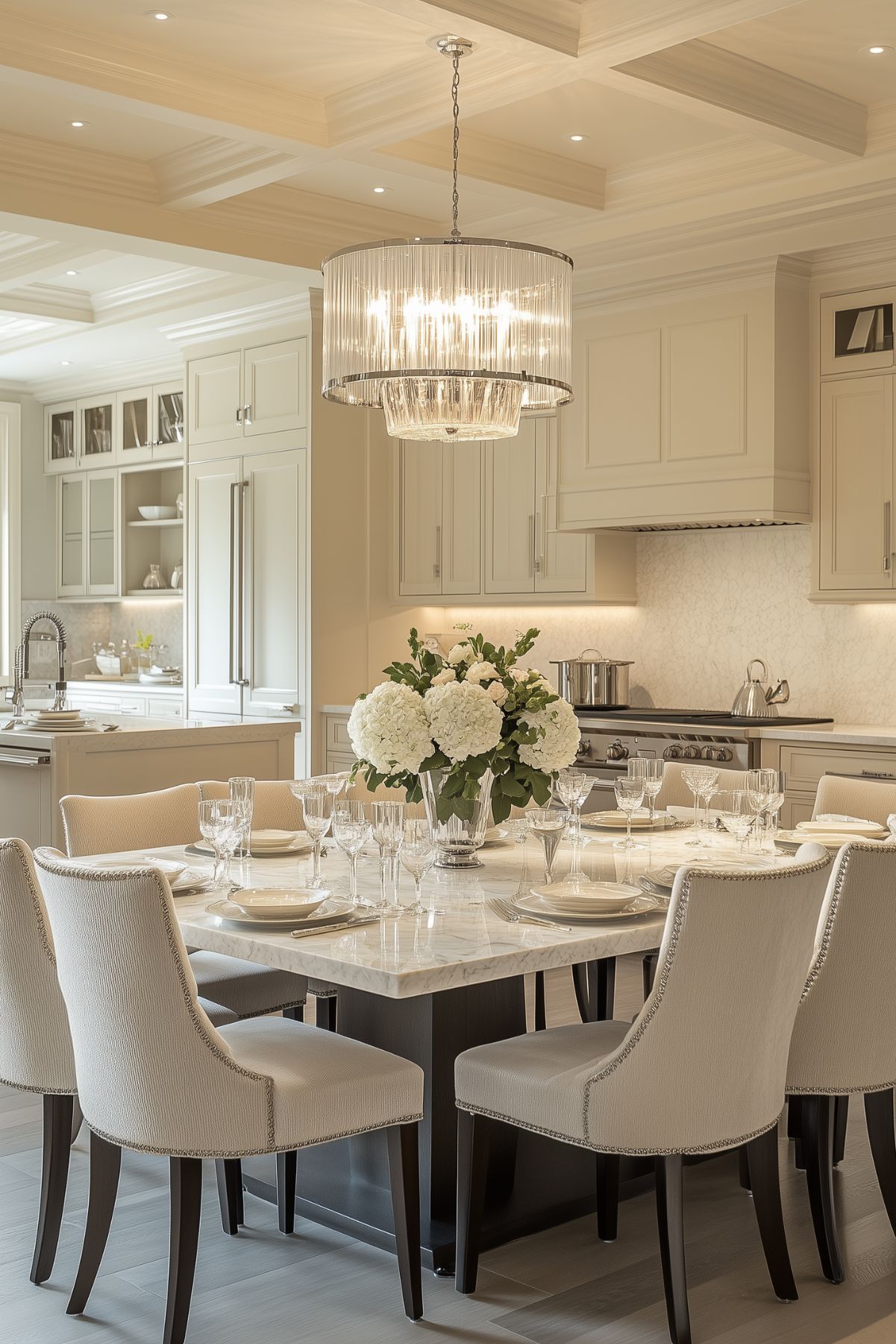
Quartz kitchen countertops have become increasingly popular in recent years due to their durability, low maintenance, and design versatility. Here are some of the advantages of quartz countertops:
Durability
One of the biggest advantages of quartz countertops is their durability.
Quartz is a hard and non-porous material, making it resistant to scratches, stains, and heat.
It is also less likely to chip or crack compared to other countertop materials such as granite or marble. This makes quartz a great option for busy kitchens where the countertops are subjected to heavy use and potential spills.
Maintenance and Cleaning
Another advantage of quartz countertops is their low maintenance and easy cleaning.
Unlike natural stone countertops, quartz does not require sealing and can be easily cleaned with mild soap and water.
This makes it a more hygienic option for kitchens, as it is less likely to harbor bacteria or other harmful microorganisms.
Design Versatility
Quartz countertops offer a wide range of design options, with a variety of colors, patterns, and textures available.
This allows homeowners to choose a countertop that complements their kitchen’s style and color scheme.
Quartz can also be customized to fit any kitchen layout, with options for edge profiles, backsplashes, and sink cutouts.
Non-Porous Nature
Quartz countertops are non-porous, meaning that they do not absorb liquids or stains.
This makes them an ideal option for kitchens where spills are common.
Unlike natural stone countertops, quartz does not require regular sealing to maintain its non-porous nature.
Disadvantages of Quartz Countertops
Quartz countertops are known for their durability, low maintenance, and variety of colors and designs. However, they also come with some disadvantages that homeowners should consider before making a purchase.
Cost Considerations
One of the biggest drawbacks of quartz countertops is their cost.
Quartz is generally more expensive than other countertop materials such as laminate and granite.
According to Forbes Home, the average cost of quartz countertops is around $75 to $150 per square foot, including installation.
This cost can vary depending on the quality of the quartz and the complexity of the installation.
Heat Resistance Limitations
While quartz is generally heat-resistant, it is not completely heat-proof.
Quartz countertops can be damaged by exposure to high temperatures, such as placing a hot pot or pan directly on the surface.
This can cause cracking, discoloration, or even melting of the resin used to bind the quartz together.
It is recommended to use trivets or hot pads to protect the surface from heat damage.
UV Sensitivity
Another disadvantage of quartz countertops is their sensitivity to UV rays.
Prolonged exposure to sunlight can cause fading or discoloration of the surface.
This is especially true for darker colors, which are more prone to fading.
Homeowners should consider the location of their kitchen and the amount of natural light it receives before choosing a quartz countertop color.
Environmental Impact
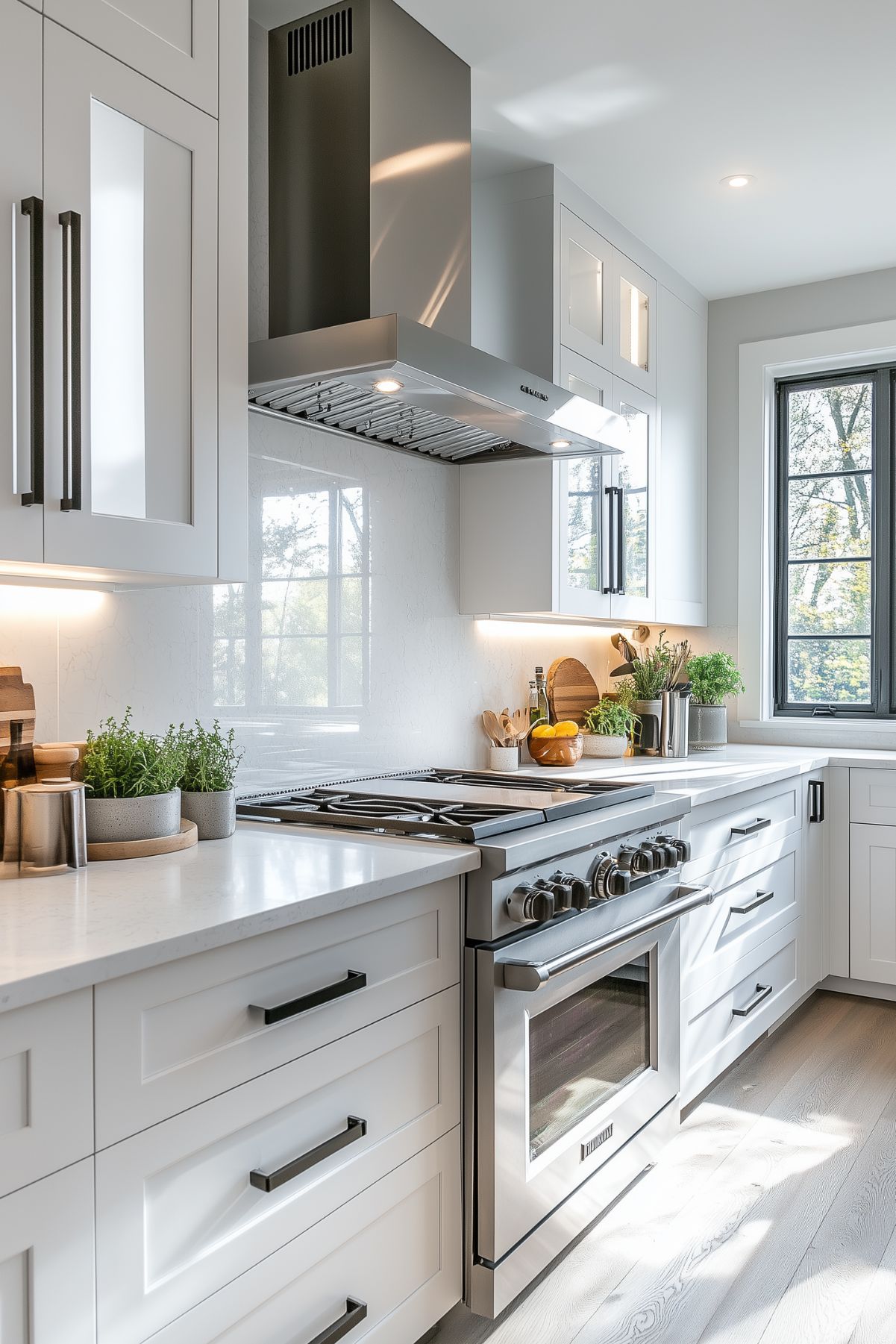
Quartz countertops are generally considered to be an environmentally friendly choice for kitchen countertops. However, it is still important to consider the environmental impact of quartz countertops before making a final decision.
Sustainability Factors
Quartz is a natural material, but the mining and manufacturing process can have a significant impact on the environment.
According to Citizen Sustainable, quartz mining can cause soil erosion, loss of biodiversity, and contamination of water sources.
However, some quartz manufacturers have taken steps to reduce their environmental impact by using sustainable practices and recycled materials.
Recyclability
One of the benefits of quartz countertops is that they are recyclable.
When a quartz countertop is no longer needed, it can be crushed and used as a base material for new countertops or other construction projects.
This can help reduce waste and minimize the environmental impact of quartz countertops.
Installation and Fabrication
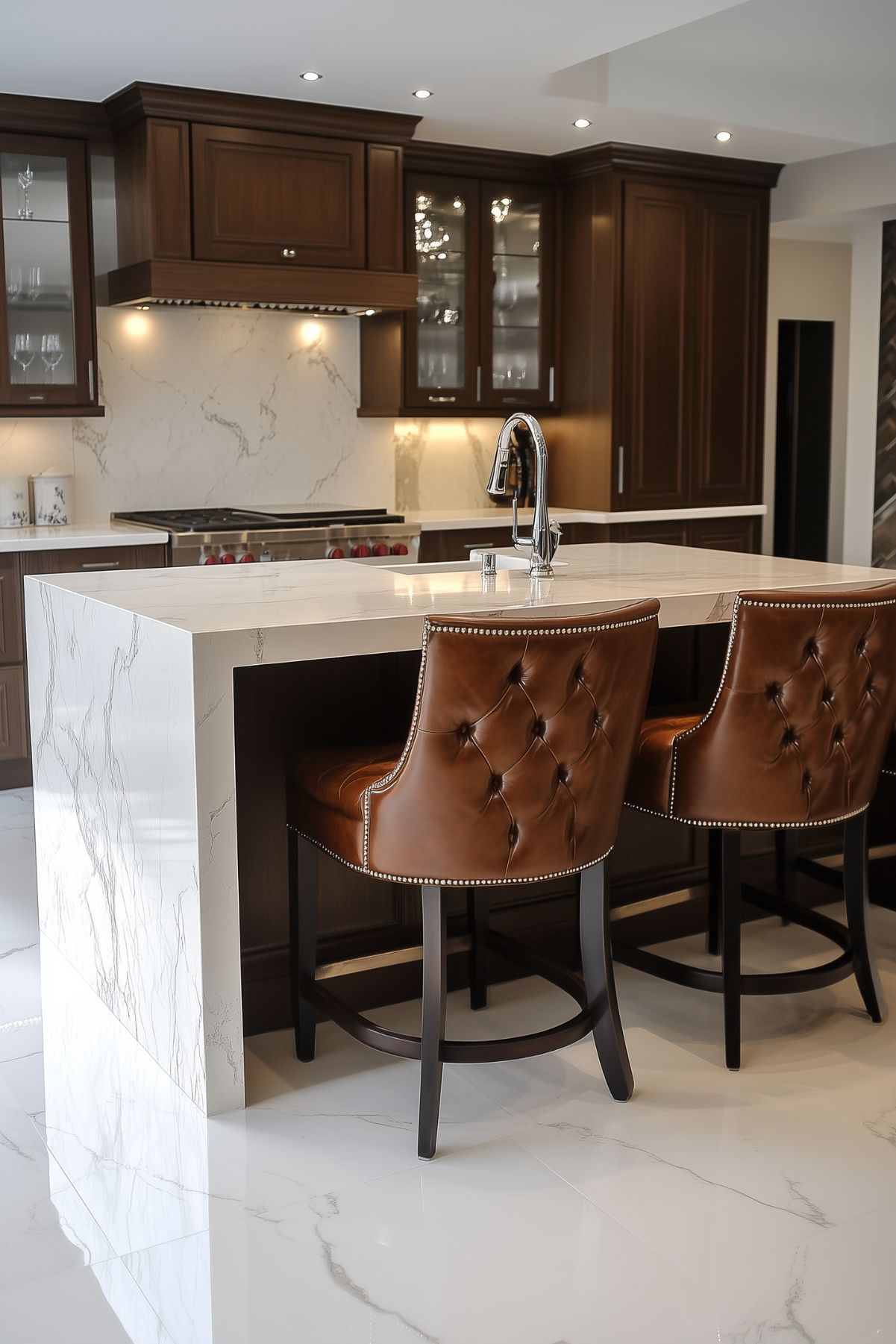
Professional Installation
Quartz kitchen countertops require professional installation.
The installation process involves precise measurements, cutting, and fitting of the countertop.
Due to the weight of the material, it is important to have a professional install the countertop to ensure it is properly supported.
Professional installation can also help to ensure that the countertop is properly sealed to prevent damage from moisture and spills.
A properly sealed countertop will help to prevent bacteria and mold growth, making it a more hygienic choice for the kitchen.
Customization Options
One of the benefits of quartz kitchen countertops is the wide range of customization options available.
Quartz countertops can be fabricated to fit any kitchen design, from modern to traditional.
They are available in a variety of colors and patterns, making it easy to find a countertop that complements the existing decor.
Quartz countertops can also be customized with different edge profiles, including straight, beveled, and bullnose.
This allows homeowners to choose a countertop that matches their personal style and preferences.
Comparison with Other Countertop Materials
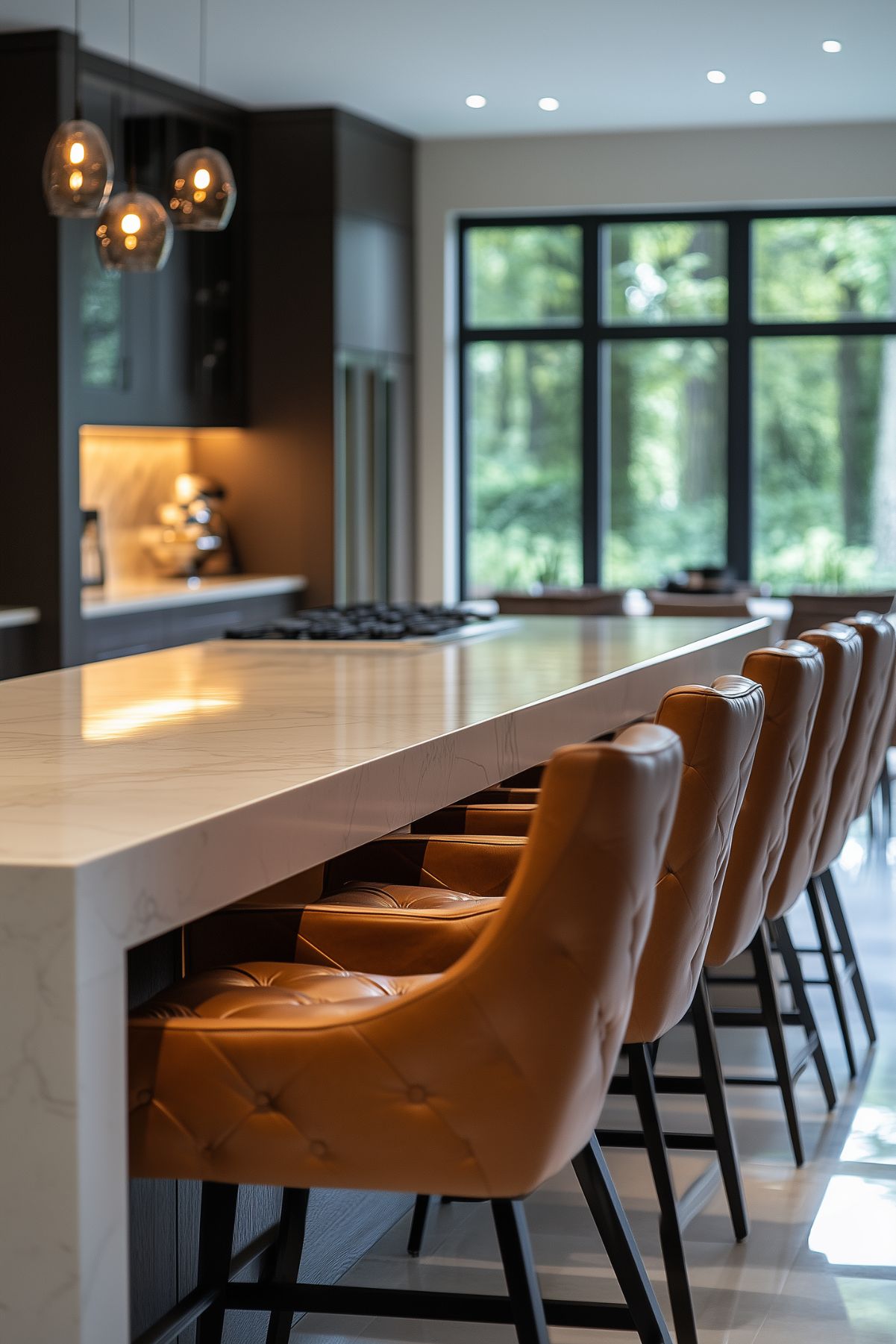
Quartz vs. Granite
Quartz and granite are two of the most popular materials for kitchen countertops.
While granite is a natural stone that is quarried from the earth, quartz is an engineered stone made from a combination of natural quartz and resins.
One of the biggest differences between the two is that granite is porous, which means it can stain and harbor bacteria if not properly sealed. On the other hand, quartz is non-porous and does not require sealing.
In terms of appearance, granite has a more natural, irregular pattern, while quartz has a more consistent pattern.
Granite also has a wider range of colors and patterns available, while quartz is limited to the colors and patterns that can be created during the manufacturing process.
When it comes to maintenance, both materials are relatively low-maintenance and easy to clean.
However, because granite is porous, it requires periodic sealing to prevent staining and bacteria growth. Quartz, on the other hand, does not require sealing and can be cleaned with just soap and water.
Quartz vs. Marble
Marble is a natural stone that is often used for kitchen countertops due to its beauty and elegance. However, it is also a porous stone that can stain and scratch easily.
Quartz, on the other hand, is non-porous and much more durable than marble.
In terms of appearance, marble has a unique veining pattern that is highly sought after, while quartz has a more consistent pattern.
Marble also has a limited range of colors available, while quartz can be manufactured in a wide range of colors and patterns.
When it comes to maintenance, marble requires periodic sealing to prevent staining and scratching.
It is also more susceptible to damage from acidic substances like lemon juice and vinegar. Quartz, on the other hand, does not require sealing and is much more resistant to staining and scratching.
Care and Maintenance Tips
Maintaining quartz countertops is a breeze, but it is important to follow a few guidelines to keep them looking their best.
In this section, we will cover the daily care routine and long-term maintenance tips for quartz kitchen countertops.
Daily Care Routine
The daily care routine for quartz kitchen countertops is simple and straightforward. Here are a few tips to keep in mind:
- Wipe up spills immediately: Quartz is stain-resistant, but it is still important to wipe up spills as soon as possible to prevent them from setting in.
- Use a mild detergent: For daily cleaning, use a mild detergent and warm water.
- Avoid using abrasive cleaners or scrubbers as they can damage the surface of the countertop.
- Avoid harsh chemicals: Do not use harsh chemicals such as bleach, ammonia, or oven cleaner on quartz countertops as they can damage the surface.
Long-Term Maintenance
While quartz countertops are relatively low maintenance, there are a few things you can do to keep them looking their best for years to come:
- Use cutting boards: While quartz is scratch-resistant, it is still a good idea to use cutting boards to prevent any scratches or damage to the surface.
- Avoid heat damage: Quartz can withstand heat, but it is still a good idea to use trivets or hot pads under hot pots and pans to prevent any damage to the surface.
- Clean up spills promptly: If a spill is left on the countertop for an extended period of time, it can still cause staining. It is important to clean up spills promptly to prevent any damage to the surface.
Warranty and Longevity
Quartz countertops are known for their durability and low maintenance. They are resistant to scratches, heat, and stains, making them an ideal choice for busy kitchens. However, like any other material, they are not indestructible.
It is important to understand the warranty and longevity of quartz countertops before making a purchase.
Average Lifespan
Quartz countertops can last for many years with proper care and maintenance. The average lifespan of a quartz countertop is between 25 to 50 years.
However, this can vary depending on the quality of the material and the installation. A poorly installed countertop can lead to cracks and chips, which can reduce its lifespan.
Warranty Coverage
Most quartz countertop manufacturers offer a warranty on their products. The warranty coverage can vary depending on the manufacturer and the type of countertop.
Some manufacturers offer a limited warranty that covers defects in material and workmanship for a specific period of time, such as 10 to 15 years. Others offer a lifetime warranty that covers the entire lifespan of the countertop.
It is important to read the warranty carefully and understand what is covered and what is not.
Some warranties may only cover the replacement of the material, while others may cover the cost of installation as well. It is also important to follow the manufacturer’s care and maintenance instructions to ensure that the warranty remains valid.

Final Thoughts
Quartz kitchen countertops are a popular choice for homeowners due to their durability, low maintenance, and aesthetic appeal.
However, they do have some drawbacks that should be taken into consideration before making a final decision.
One of the main advantages of quartz countertops is their non-porous nature, which makes them resistant to stains, scratches, and bacteria.
They are also available in a wide range of colors and patterns, which allows homeowners to find the perfect match for their kitchen decor.
On the other hand, quartz countertops can be quite expensive, especially if you opt for a high-end brand or design.
They are also not heat-resistant, which means you should avoid placing hot pots and pans directly on the surface.
Another potential drawback of quartz countertops is their weight, which can make installation difficult and require additional structural support.
However, this can be easily solved by hiring a professional installer with experience in handling heavy materials.
